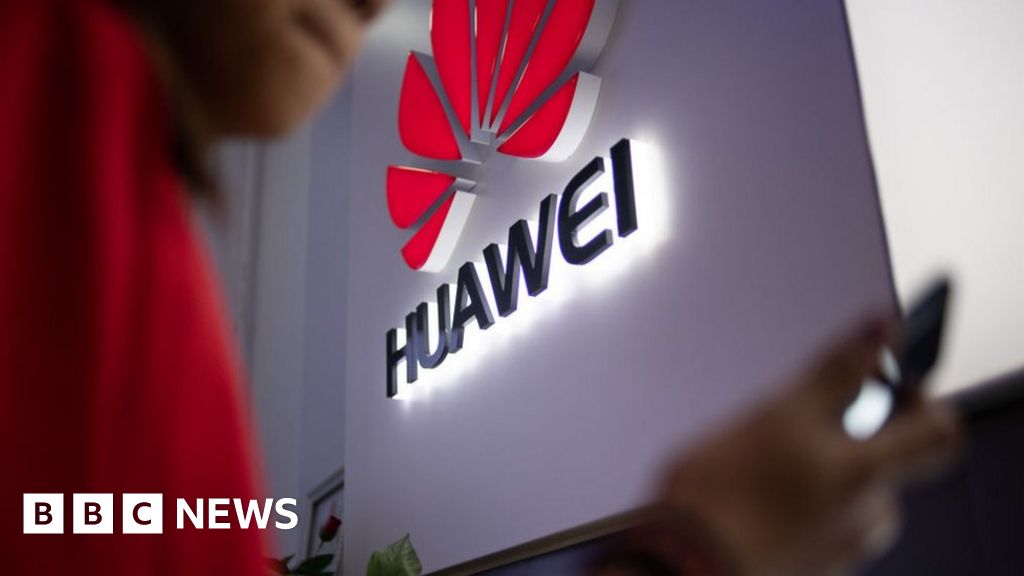Huawei: 'We Stand Naked In Front Of The World'

 Image copyright
AFP
Image copyright
AFP
Huawei has denied that it has any links to the Chinese government.
Huawei's cyber-security chief John Suffolk told MPs on Monday that the tech giant had never been asked by China or any other government to "do anything untoward".
Mr Suffolk said Huawei welcomed outsiders to analyse its products and detect engineering or coding flaws.
"We stand naked in front of the world, but we would prefer to do that, because it enables us to improve our products."
He added: "We want people to find things, whether they find one or one thousand, we don't care. We are not embarrassed by what people find."
Huawei was invited to the Technology and Science Select Committee to answer questions from MPs on the security of its equipment, and its links to the Chinese government.
The US has encouraged allies to block Huawei - the world's largest maker of telecoms equipment - from their 5G networks, saying the Chinese government could use its products for surveillance.
"We've never had a request from the Chinese government to do anything untoward at all," said Mr Suffolk.
"We have never been asked by the Chinese government or any other government, I might add, to do anything that would weaken the security of a product."
MPs raised concerns about Chinese human rights abuses, such as reports that up to a million Muslims are in detention centres in Xinjiang province.
They asked whether Huawei was required to provide equipment to Xinjiang province, especially in light of the 2017 Chinese intelligence law, which requires individuals and associations to comply with Chinese intelligent agencies.
Mr Suffolk said: "We have had to go through a period of clarification with the Chinese government, that has come out and made it quite clear that that is not the requirement of any company.
"We've had that validated via our lawyers and revalidated by Clifford Chance...according to our legal advice, that does not require Huawei to undertake anything that weakens Huawei's position in terms of security."
MPs asked whether Huawei would be able to remotely access the UK's 5G mobile networks via its equipment.
In reply, Mr Suffolk stressed that Huawei is a provider of telecommunications equipment to mobile network operators.
"We don't run networks, and because we don't run the network, we have no access to any of the data that is running across that network," he said.
He also explained that Huawei is only one of about 200 vendors who would be providing various different bits of equipment that would eventually make up a 5G network in the UK.
However, if an operator were to have a problem with Huawei equipment, a support centre based in Romania would be able to remotely access the equipment to fix the problem.
MPs wanted to know whether it would be possible for a 5G network to be used to track an individual user.
In response, Mr Suffolk explained that mobile phone technology requires the mobile operator to constantly track a user's phone, in order to be able to connect them to the mobile network.
By that logic, the operator is constantly tracking all of its customers, all the time.
He also told MPs that only about 30% of the the components in Huawei products are actually made by the company - the rest of the components are obtained from a global supply chain that Huawei closely monitors in order to prevent security breaches.
From Chip War To Cloud War: The Next Frontier In Global Tech Competition
The global chip war, characterized by intense competition among nations and corporations for supremacy in semiconductor ... Read more
The High Stakes Of Tech Regulation: Security Risks And Market Dynamics
The influence of tech giants in the global economy continues to grow, raising crucial questions about how to balance sec... Read more
The Tyranny Of Instagram Interiors: Why It's Time To Break Free From Algorithm-Driven Aesthetics
Instagram has become a dominant force in shaping interior design trends, offering a seemingly endless stream of inspirat... Read more
The Data Crunch In AI: Strategies For Sustainability
Exploring solutions to the imminent exhaustion of internet data for AI training.As the artificial intelligence (AI) indu... Read more
Google Abandons Four-Year Effort To Remove Cookies From Chrome Browser
After four years of dedicated effort, Google has decided to abandon its plan to remove third-party cookies from its Chro... Read more
LinkedIn Embraces AI And Gamification To Drive User Engagement And Revenue
In an effort to tackle slowing revenue growth and enhance user engagement, LinkedIn is turning to artificial intelligenc... Read more

